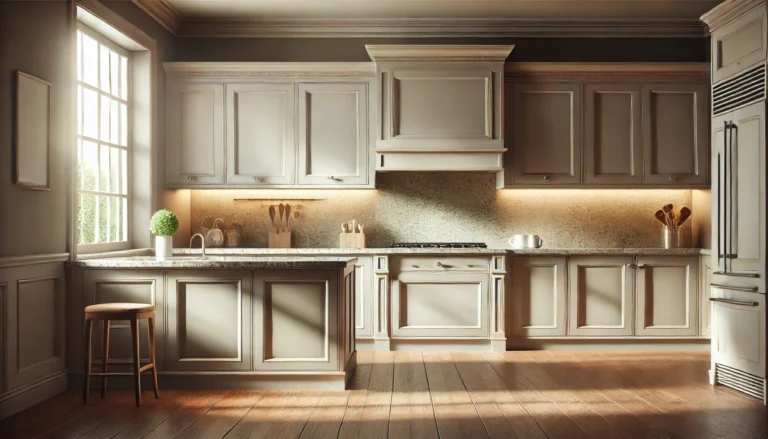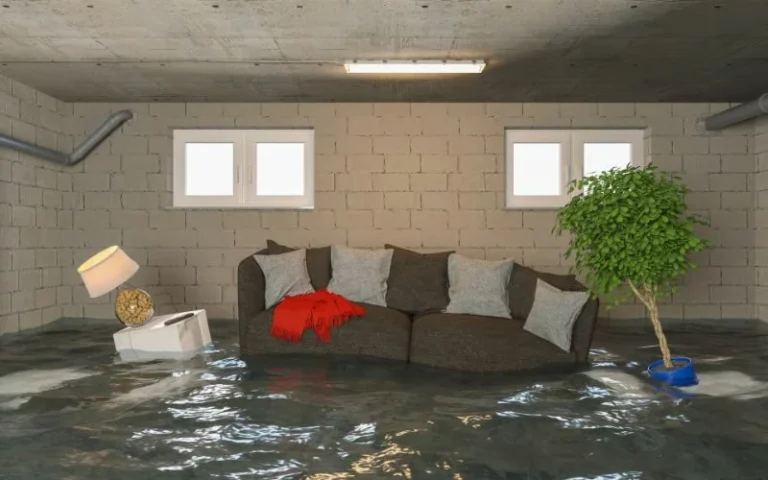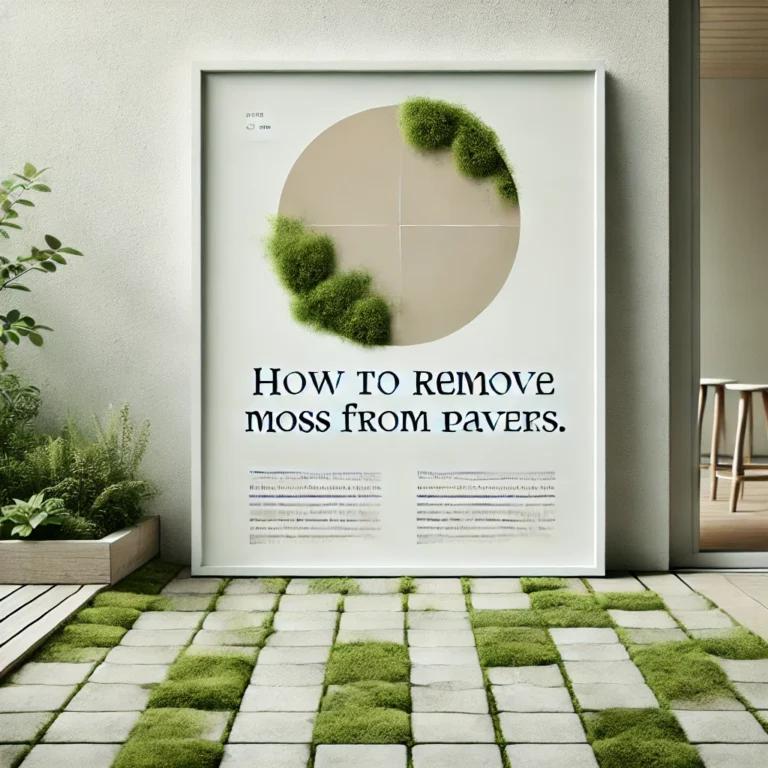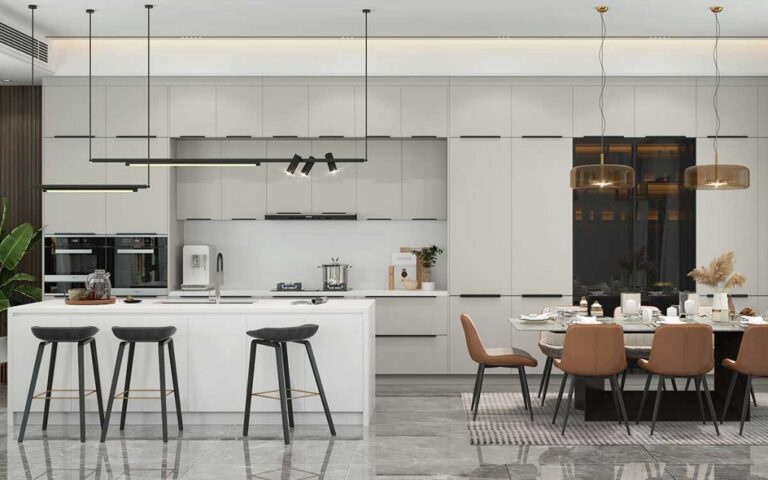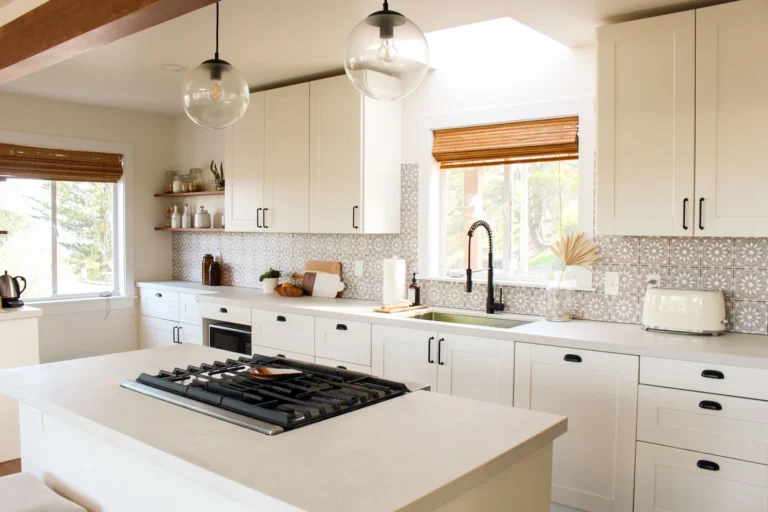How to Get Rid of Pigeons on Balcony: 7 Proven Methods & Natural Solutions
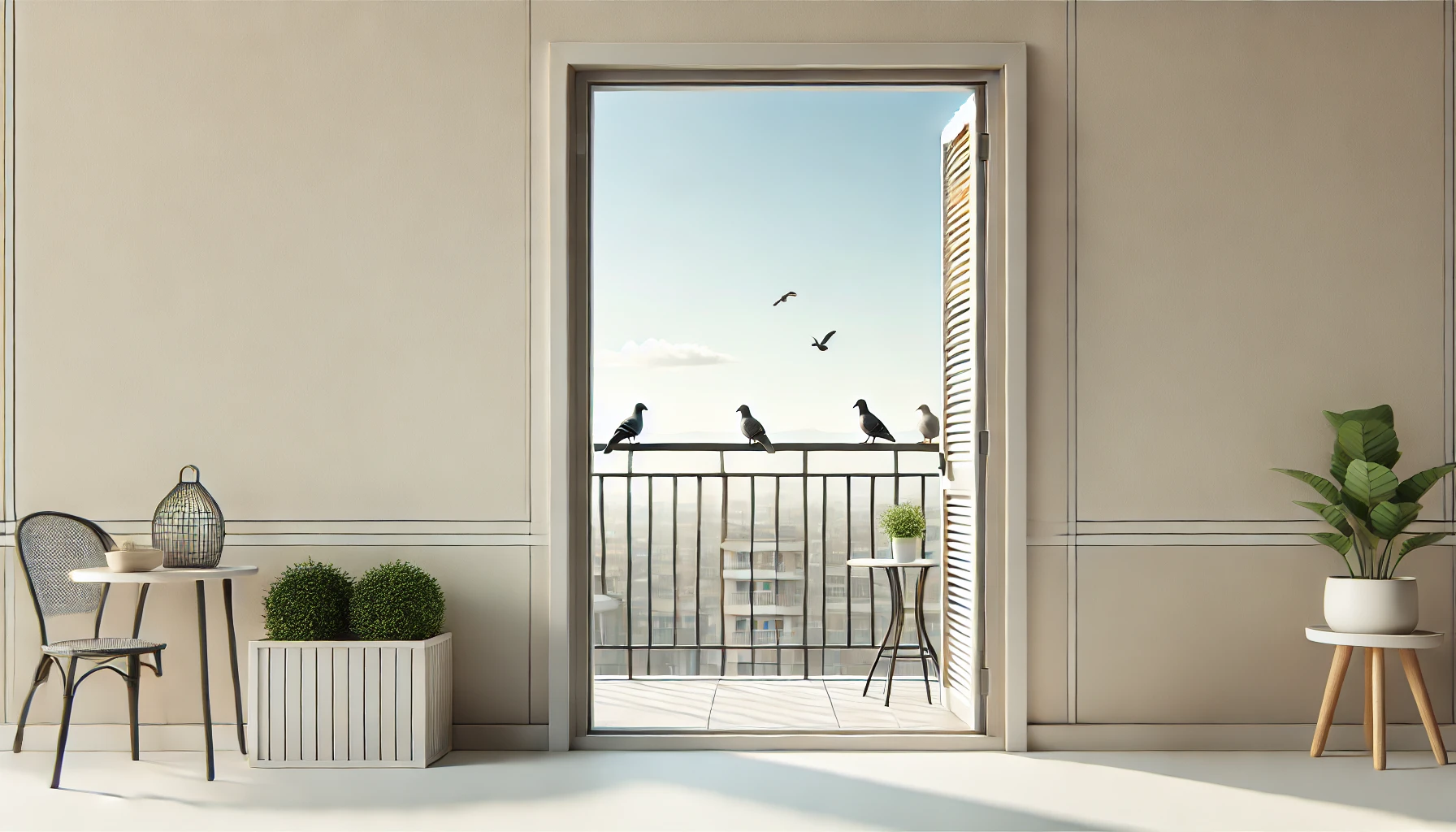
Having pigeons on your balcony can quickly turn into a nuisance, as these birds tend to build nests, leave droppings, and disturb your peace. If you’ve been struggling with pigeons on your balcony, you’re not alone! In this guide, we’ll explore various methods to get rid of pigeons on your balcony in a humane and effective way. From physical barriers to natural deterrents, we’ve got you covered.
Understanding the Problem: Why Pigeons Are Attracted to Your Balcony
Pigeons are drawn to balconies because they offer a safe, sheltered place to roost, nest, and even raise their young. Balconies are often quiet, elevated spaces that provide protection from predators, making them ideal for pigeons looking for a safe place to settle. Additionally, food scraps and open water sources can also attract pigeons, making it crucial to address the root cause of their attraction.
Common Problems Caused by Pigeons on Balconies
Having pigeons on your balcony isn’t just a nuisance; it can lead to several issues, including:
- Damage from Droppings: Pigeon droppings are acidic and can damage furniture, plants, and even the structure of your balcony.
- Health Risks: Pigeon droppings can carry diseases like histoplasmosis and cryptococcosis, which can affect both humans and pets.
- Nesting Issues: Pigeons often build nests that can obstruct drainage systems, cause blockages, and attract pests like insects and mites.
7 Proven Methods to Get Rid of Pigeons on Your Balcony
Pigeons can quickly become a nuisance when they take up residence on your balcony. Their droppings can damage your furniture, plants, and railings, and their presence can cause significant discomfort. Thankfully, there are several effective methods you can use to deter pigeons from your balcony and reclaim your outdoor space. In this section, we’ll explore 7 proven methods that can help you get rid of pigeons for good.
1. Physical Barriers to Keep Pigeons Away
One of the most effective ways to prevent pigeons from landing on your balcony is by installing physical barriers. These barriers act as a deterrent by making it difficult or uncomfortable for pigeons to perch or nest in the area. Here are some popular options:
- Wire Mesh: Installing wire mesh along the edges of railings, ledges, and other areas pigeons favor can effectively prevent them from landing. The mesh should have small enough openings to prevent pigeons from squeezing through.
- Bird Spikes: Bird spikes are a simple yet effective solution for keeping pigeons away from your balcony. These spikes can be installed along railings, window sills, or any horizontal surface where pigeons typically perch. The sharp tips discourage pigeons from landing without harming them.
- Netting: Bird netting is a versatile solution that can be used to cover larger areas such as entire balconies, roofs, or ledges. It prevents pigeons from entering or nesting and is a humane way to keep your space pigeon-free.
These physical deterrents are a permanent and reliable solution, especially in areas where pigeons have been frequenting for a long time.
2. Using Repellents to Discourage Pigeons
Pigeon repellents create an environment that is unpleasant for the birds, encouraging them to look for a more comfortable spot. There are various types of repellents, both chemical and natural, that can be used to discourage pigeons from coming near your balcony.
- Reflective Objects: Pigeons are often intimidated by shiny, reflective surfaces. Hanging reflective objects like CDs, aluminum foil strips, or reflective tape can effectively deter pigeons. The constant motion and flash of light confuse the birds and make them reluctant to approach.
- Commercial Repellents: There are commercial pigeon repellents available that you can spray on areas where pigeons tend to land. These repellents typically create a sticky, uncomfortable surface that makes it difficult for pigeons to settle.
- Essential Oils: Strong scents like peppermint, eucalyptus, or citronella are natural pigeon repellents. Pigeons dislike these smells, so spraying essential oils mixed with water around your balcony can help keep them at bay.
Repellents work best when used in combination with other deterrent methods, providing a layered defense against pigeons.
3. Acoustic Deterrents: Noise to Keep Pigeons Away
Pigeons rely heavily on their senses, including hearing, to navigate and find safe spaces to perch. Introducing noise can disrupt their sense of security and encourage them to leave.
- Wind Chimes: Hanging wind chimes on your balcony can create a constant sound that irritates pigeons. The tinkling noise is enough to prevent them from landing or staying for long periods.
- Noise Makers: Devices that emit sudden, sharp noises can also help keep pigeons away. These can include ultrasonic devices, which emit sounds that are unpleasant to birds but inaudible to humans, or simple noise-making devices like bird scare guns or sound machines.
The use of noise can be especially effective in areas with frequent pigeon activity, as it creates a constant disturbance and makes pigeons feel uncomfortable.
4. Visual Deterrents: Scaring Pigeons Away with Sight
Pigeons are highly visual creatures and are often frightened by things that resemble predators or that create confusion in their environment. Using visual deterrents is a non-invasive method to keep pigeons from landing on your balcony.
- Decoy Predators: Pigeons tend to avoid areas where they perceive potential threats. Placing decoy predators like plastic owls or hawks on your balcony can trick pigeons into thinking that the area is unsafe. For the best effect, move the decoys around occasionally to make them appear more realistic.
- Reflective Tape or Mirrors: Shiny surfaces or reflective tape can confuse pigeons and prevent them from approaching your balcony. The light reflections can make the area seem unstable, which discourages pigeons from staying.
Visual deterrents are an easy-to-implement and cost-effective solution, especially if you’re looking for a simple way to scare off pigeons without much effort.
5. Making Your Balcony Unappealing for Pigeons
If you want to make your balcony less attractive to pigeons, consider making simple changes that will reduce its appeal.
- Angled Surfaces: Pigeons prefer to land on flat surfaces where they can comfortably perch. By installing angled ledges or platforms, you can make it difficult for pigeons to land or rest. The steeper the angle, the more likely it is that pigeons will avoid it.
- Zip Ties or Nails: Attaching zip ties or nails to your balcony railings or ledges can create an uncomfortable surface for pigeons. The uneven and sharp texture discourages them from landing and makes it difficult for them to settle in.
These methods make your balcony a less comfortable space for pigeons, which will ultimately drive them away.
6. Removing Pigeon Nests Safely
If pigeons have already started nesting on your balcony, it’s important to remove their nests in a way that doesn’t harm the birds or violate any local regulations. Here’s how to safely remove pigeon nests:
- Remove Nests and Eggs: If you spot a pigeon nest, gently remove it using gloves or a tool. Pigeons may return to the same spot, so it’s essential to act quickly. However, be aware that some laws protect bird species, and removing nests during certain times of the year (like breeding season) might be illegal in some areas.
- Clean the Area: After removing the nest, thoroughly clean the area to remove any pigeon droppings and food scraps that might attract more birds. Disinfect the surface to prevent the spread of disease.
It’s important to monitor your balcony after removing the nests, as pigeons may attempt to return. Using barriers and repellents can help prevent further nesting.
7. Regular Cleaning and Maintenance
A clean balcony is less likely to attract pigeons. If you want to prevent pigeons from settling in the first place, make sure to maintain cleanliness around your outdoor space.
- Clean Droppings Regularly: Pigeon droppings not only cause damage but can also attract other pigeons. Regularly clean your balcony and remove any droppings as soon as possible to discourage pigeons from returning.
- Remove Food Sources: Pigeons are often attracted to food scraps. If you’ve been feeding birds or leaving food on your balcony, stop doing so immediately. Also, make sure there’s no water source that pigeons can drink from.
Regular cleaning and maintenance are crucial in making your balcony an unappealing space for pigeons, ensuring they don’t come back.
Pigeons can be persistent, but with the right methods, you can keep them away from your balcony for good. Whether you use physical barriers, repellents, or visual deterrents, a combination of approaches will yield the best results. By taking action and making your balcony less inviting to pigeons, you can enjoy your outdoor space without the hassle of unwanted feathered guests.
Natural Ways to Get Rid of Pigeons on Your Balcony
If you’re looking for eco-friendly and humane ways to keep pigeons off your balcony, there are several natural methods you can try. These approaches not only help to deter pigeons but also minimize harm to the environment and the birds. Here are some effective natural ways to get rid of pigeons from your balcony:
1. Use Strong-Smelling Essential Oils
Pigeons have a strong sense of smell and are repelled by certain scents. Using essential oils can be an effective, natural way to discourage them from coming near your balcony.
- Peppermint Oil: Pigeons dislike the strong aroma of peppermint. You can mix a few drops of peppermint oil with water and spray it around the areas where pigeons tend to perch.
- Eucalyptus Oil: Another powerful scent that pigeons find offensive is eucalyptus. A diluted eucalyptus oil spray can keep them away from your balcony.
- Garlic or Cinnamon: Pigeons are also deterred by garlic and cinnamon. Boiling water with crushed garlic and cinnamon sticks and spraying the mixture on your balcony can help keep pigeons at bay.
By refreshing these essential oil sprays every few days, you can create an unwelcoming environment for pigeons without causing them harm.
2. Hang Reflective Objects
Pigeons are easily frightened by flashing, reflective surfaces. Hanging reflective objects on your balcony can create an environment that the birds will avoid. This is a non-toxic and cost-effective method to deter pigeons.
- Old CDs or DVDs: Hang old CDs or DVDs from strings on your balcony. The reflective surfaces, combined with the movement in the wind, will create a dazzling effect that pigeons find unsettling.
- Aluminum Foil Strips: Cutting strips of aluminum foil and hanging them around your balcony will reflect light and scare away pigeons.
- Mirrors: A small mirror placed at an angle can also confuse pigeons by reflecting light and creating an illusion of movement.
These visual deterrents work well in both direct sunlight and cloudy weather, and they require minimal effort to install.
3. Create Noise with Wind Chimes
Pigeons are sensitive to noise and can be deterred by sounds that make them feel uncomfortable. Wind chimes are a simple and natural solution that can keep pigeons away from your balcony without the need for harmful chemicals or traps.
- Wind Chimes: The constant tinkling of wind chimes in the breeze creates a soothing yet unnerving sound for pigeons. The noise signals that the area is not safe for them to land. Opt for chimes with irregular sounds to make the effect even more potent.
- Noise Makers: Alternatively, you can use natural noise-making objects such as bells, clanging pots, or even a DIY noise maker using small tin cans. The noise from these objects can act as a warning to pigeons and encourage them to seek a quieter location.
Wind chimes are an aesthetically pleasing way to address the pigeon problem while adding a touch of charm to your balcony.
4. Use Spicy Deterrents
Pigeons have a heightened sense of smell and taste, making them particularly sensitive to spicy substances. You can use natural, spicy deterrents to create a barrier that pigeons will avoid.
- Cayenne Pepper: Pigeons find cayenne pepper and other chili powders offensive. Sprinkle cayenne pepper around your balcony railings and ledges to create an unwelcoming environment for the birds. The strong scent will deter them from landing.
- Chili Flakes or Ground Black Pepper: Similar to cayenne, chili flakes or ground black pepper can be sprinkled in areas where pigeons tend to roost. The pungent scent and taste will make them uncomfortable and encourage them to leave.
These natural deterrents are harmless to the birds but highly effective in driving them away.
5. Install a Garden or Plant Barrier
Pigeons like to perch in calm, elevated areas where they can observe their surroundings. Installing plants that have a strong scent or sharp, prickly foliage can naturally discourage pigeons from nesting or perching on your balcony.
- Thorny Plants: Place thorny or prickly plants along the edges of your balcony to create a natural barrier. Plants like holly, rose bushes, or cacti can make it difficult for pigeons to land or build nests.
- Herbs: Certain herbs, such as lavender, rosemary, or mint, have strong aromas that pigeons find unpleasant. Planting these herbs along your balcony railings or in pots can act as a natural repellent.
This method has the added bonus of making your balcony more vibrant and aromatic while keeping pigeons at bay.
6. Install Bird Netting or Mesh
If you’re looking for a natural, non-toxic solution to prevent pigeons from accessing your balcony, installing bird netting or mesh can be highly effective. This method physically blocks the pigeons from entering the area without causing them harm.
- Bird Netting: Soft bird netting can be placed around the perimeter of your balcony to prevent pigeons from landing or nesting. The mesh size should be small enough to keep pigeons out but large enough to allow airflow.
- PVC Mesh: Lightweight PVC mesh is another option that can be stretched across balcony railings, windows, or ledges to block pigeon access. This is a simple, unobtrusive way to create a barrier without resorting to toxic chemicals or traps.
Netting and mesh are practical, humane ways to deter pigeons and protect your space.
7. Utilize Natural Predators
Pigeons are naturally wary of predators. By introducing decoys that mimic their natural enemies, you can effectively scare pigeons off your balcony without causing them harm.
- Plastic Owls or Hawks: These decoy predators can be placed on your balcony to create the illusion that there’s a threat nearby. Pigeons will avoid the area, thinking it’s unsafe.
- Predator Scents: You can use the scent of predators, such as the urine of cats or other birds of prey, to repel pigeons. Commercial predator scent products are available, or you can create your own by using natural animal scent deterrents.
While decoys can be effective, it’s essential to move them around periodically to maintain the illusion of danger and ensure that pigeons don’t grow accustomed to them.
Natural methods are an excellent way to keep pigeons off your balcony without resorting to harmful chemicals or invasive measures. Whether you use strong-smelling oils, reflective objects, or plants, these solutions can effectively deter pigeons and create a more peaceful environment on your balcony. Additionally, learning how to cover your balcony with natural deterrents can help keep pigeons away while enhancing the functionality and aesthetics of your space. By combining these natural approaches, you can ensure that your outdoor space remains free from pigeon problems while maintaining a humane and eco-friendly approach.
How to Prevent Pigeons from Returning to Your Balcony

Once you’ve successfully gotten rid of pigeons on your balcony, the next step is to prevent them from returning. Pigeons are creatures of habit, so it’s essential to take proactive measures to make your balcony less appealing to them. Here are several effective strategies to ensure pigeons stay away for good:
1. Maintain a Clean Balcony
Pigeons are attracted to food and nesting materials. Keeping your balcony clean is one of the most important steps in preventing pigeons from returning.
- Remove Food Sources: Ensure that there is no food left out on your balcony, as pigeons are always looking for a quick snack. This includes crumbs, birdseed, or even pet food.
- Clean Regularly: Sweep away any debris, including pigeon droppings, feathers, and old nesting materials. Pigeons may be attracted to these remnants, thinking it’s a suitable place to nest again.
- Keep Gutters Clean: Clogged gutters can provide a place for pigeons to nest. Make sure your gutters are clean and clear of debris.
2. Block Access Points
Pigeons often return to places where they’ve previously found shelter. To prevent them from returning, you need to make it difficult for them to access your balcony.
- Seal Gaps and Holes: Inspect your balcony for any gaps, cracks, or holes that pigeons can use to gain access. Seal these openings with caulking or weatherstripping to ensure that pigeons can’t sneak in.
- Install Barriers: Consider installing physical barriers like netting, wire mesh, or spikes along edges and ledges to block pigeons from landing or nesting. These barriers will deter pigeons from returning to your balcony.
3. Use Deterrents Consistently
Once pigeons have been removed from your balcony, you need to keep them away by using consistent deterrents. A combination of visual, auditory, and physical deterrents can work wonders in keeping pigeons from returning.
- Reflective Objects: As mentioned earlier, using reflective items like aluminum foil, CDs, or mirrors around your balcony can discourage pigeons from coming back. The movement and flashing light are often enough to deter them.
- Noise Makers: Wind chimes, bells, or even clanging pots can create noise that will make your balcony feel unsafe for pigeons. Make sure to keep them in place so that pigeons don’t get used to the sound.
- Predator Decoys: Moving plastic owls, hawk decoys, or other predator replicas can create the illusion of danger. Be sure to move them around to avoid pigeons getting used to them.
4. Implement Natural Deterrents
While visual and physical barriers are effective, natural deterrents are another great way to prevent pigeons from returning to your balcony.
- Essential Oils: Strong-smelling oils like peppermint, eucalyptus, or garlic are natural repellents. Regularly spray these oils around your balcony to keep pigeons at bay. The strong scents will irritate their sensitive noses and discourage them from returning.
- Spicy Sprays: As mentioned earlier, pigeons dislike spicy substances like cayenne pepper or chili powder. Sprinkle these around your balcony to create an uncomfortable environment for the birds.
5. Use a Permanent Perch Replacement
If pigeons have been roosting on your balcony for some time, they may be fond of the perch. By offering them an alternative perch far from your balcony, you can lure them away.
- Install a Bird Feeder: Place a bird feeder in a different part of your property, far from the balcony. The birds may decide to feed there instead, making it less likely that they will return to your balcony.
- Create a Bird Sanctuary: Set up a designated area for birds on your roof or in your garden with proper nesting spaces. By offering a better alternative, you reduce the likelihood of pigeons returning to your balcony.
6. Regularly Move Deterrents
Pigeons are creatures of habit and, over time, they may get used to stationary deterrents. To keep them on their toes, it’s important to move your deterrents around regularly.
- Move Reflective Items and Decoys: Change the placement of your reflective objects, wind chimes, or predator decoys every few weeks. This will prevent pigeons from becoming accustomed to the setup and will keep them from returning.
- Reposition Mesh or Spikes: If you’ve installed netting, spikes, or other physical barriers, be sure to adjust them as needed to make your balcony less predictable.
7. Consider Professional Help
If you’ve tried all the above methods and pigeons are still a recurring problem, it may be time to seek professional help. Pest control experts can assess your situation and offer targeted solutions, such as installing more advanced pigeon-proofing systems, or using specialized repellents.
- Professional Netting Installation: If you want a more permanent and discreet solution, experts can install high-quality bird netting that’s practically invisible and highly effective at keeping pigeons out.
- Pigeon Control Programs: Some pest control companies offer long-term pigeon control programs, which include routine maintenance and monitoring to ensure pigeons don’t return.
Preventing pigeons from returning to your balcony requires a combination of proactive steps, regular maintenance, and natural deterrents. By keeping your balcony clean, blocking access points, using deterrents consistently, and offering alternative perches, you can make your balcony an unattractive place for pigeons. While pigeons can be persistent, these strategies will go a long way in ensuring they stay away for good. If all else fails, professional help may be the solution for a more permanent, tailored approach.
Conclusion
Getting rid of pigeons on your balcony doesn’t have to be a difficult task. With a combination of physical barriers, visual deterrents, and regular maintenance, you can create an environment that discourages pigeons from settling in. Start with the methods that best suit your needs, and take action today to enjoy a pigeon-free balcony. If you’re still facing challenges, don’t hesitate to seek professional help for more tailored solutions.

